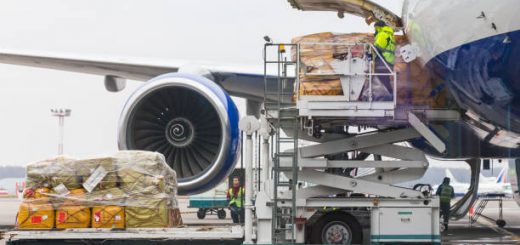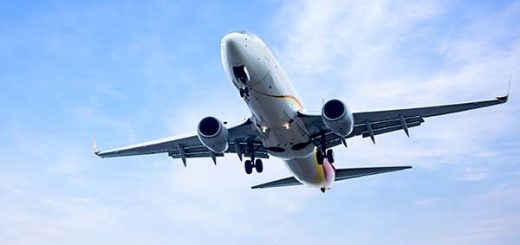Air freight meaning: freight charges and 6 types of Air freight
Introduction
Air freight is transporting goods by air from one location to another. It’s a quick and efficient way to move goods and has significant advantages when moving expensive or time-sensitive items. In this blog post, we will discuss air freight types, freight charges and customs clearance, air freight forwarders and airline cargo policies, and air freight security.
Types of Air Freight
The types of air freight vary, and different types can be selected depending on your needs.
International Air Freight: This involves transporting goods between countries. There are two classes of international air freight: import and export.
- Import: This refers to the carrying of goods into a country
- Export: This refers to the carrying of goods out of a country
Domestic Air Freight: This involves transporting goods within a country. It is often used for time-sensitive shipments or items that must be transported to remote locations within a country.
Express Air Freight: This type is designed for urgent shipments that require expedited delivery. Express air freight typically costs more than other types of air freight.
Oversized Air Freight: It refers to items too large to be transported on a standard passenger aircraft. This type of air freight typically requires a specialised cargo aircraft for transportation.
Hazardous Air Freight: This includes items classified as dangerous goods. These items require special handling and packaging to ensure their safe transportation.
Perishable Air Freight: This includes items with a limited shelf life, such as fresh produce, flowers, or pharmaceuticals. These items require specialised temperature-controlled packaging to ensure their quality during transportation.
Freight Charges for Air Freight
Different factors can determine the cost of air freight; these include: including the weight and volume of the shipment, the distance of the transportation, the timeframe, the fuel surcharge and the type of air freight.
- Weight and Volume: Your shipment’s weight and volume will impact the freight cost. Most airlines charge by weight or volume, whichever is higher.
- Destination: The distance and location of the destination can also impact the cost of air freight. Shipping to remote or hard-to-reach locations can attract higher shipping costs.
- Type of Goods: The type of goods being shipped can also impact the cost of air freight. Perishable or hazardous goods may require special handling, which can increase the cost.
- Timeframe: The timeframe for delivery can also impact the cost of air freight. An expedited shipping service may be necessary if you need your shipment to arrive quickly.
- Fuel Surcharge: Airlines may add a fuel surcharge to freight charges to account for fluctuations in fuel prices.
There are several air freight charges, including the actual weight charge, the dimensional weight charge, and the chargeable weight charge.
The actual weight charge is based on the actual weight of the shipment. The dimensional weight charge is based on the size of the load, while the chargeable weight charge is based on the higher of the actual weight or dimensional weight of the shipment.
Optimising the weight and size of the shipment is essential to reduce air freight charges and plan and book in advance.
It’s essential to work with an air freight forwarder like Fortune Global Shipping, who can help you navigate the various factors that can impact air freight charges and help you find the most cost-effective solution for your shipment.
Air Freight Packaging
Proper packaging is essential for air freight to protect the goods during transportation. It is important that the packaging is durable and capable of protecting the contents during transportation.
Several types of air freight packaging include crates, pallets, and containers. The size and weight of a shipment determine the packaging and the type of goods being transported.
Tips for air freight packaging include ensuring the packaging is labelled correctly, securely fastened, and properly cushioned to prevent damage.
Air Freight Regulations and Customs Clearance
Air freight is subject to regulations to ensure its safety and security. These regulations vary by country and can include restrictions on specific items or requirements for certain types of packaging.
Several processing is required with the Customs before the shipment can be delivered to its final destination. The customs clearance process can be complex, and working with a customs broker or freight forwarder with experience with air freight regulations and customs procedures is essential.
Air Freight Forwarders and Airline Cargo Policies
Air freight forwarders are companies that specialise in transporting goods by air. They work with shippers to arrange for the transportation of goods, handle documentation, and ensure that the shipment complies with air freight regulations.
Airline cargo policies can vary, so it is essential to research the airline policies you plan to use for your air freight shipment. For example, some airlines may have restrictions on some specific types of cargo or require different packaging styles for some types of goods.
Freight Security
Freight security is a critical concern in today’s world. The safety of shipments is ensured by several security procedures, including cargo screening, background checks for personnel who handle air freight, and security seals on the shipments themselves.
Cargo screening involves x-ray machines, explosive detection systems, and physical inspections to screen cargo for potential threats. In addition, background checks for air freight personnel help prevent possible security breaches, while using security seals on shipments helps prevent tampering.
Conclusion
Although air freight is a fast and efficient means of transporting cargo, proper planning and detailed attention are still required. By understanding the different types, how freight is charged, packaging, regulations and customs clearance, air freight forwarders and airline cargo policies, and air freight security, you can ensure your cargo’s cost-effectiveness and successful shipping.
Whether you are shipping perishable goods or oversized items, it is crucial to work with a reputable air freight forwarder and to carefully plan your shipment to minimise costs and ensure its safe and timely delivery.
At Fortune Global, our combination of cost-effectiveness and cargo monitoring from the collection at origin, cargo movement, Customs clearance at destination and delivery to clients is one of our most dependable assets. Contact us today at www.fglobalshipping.com.



